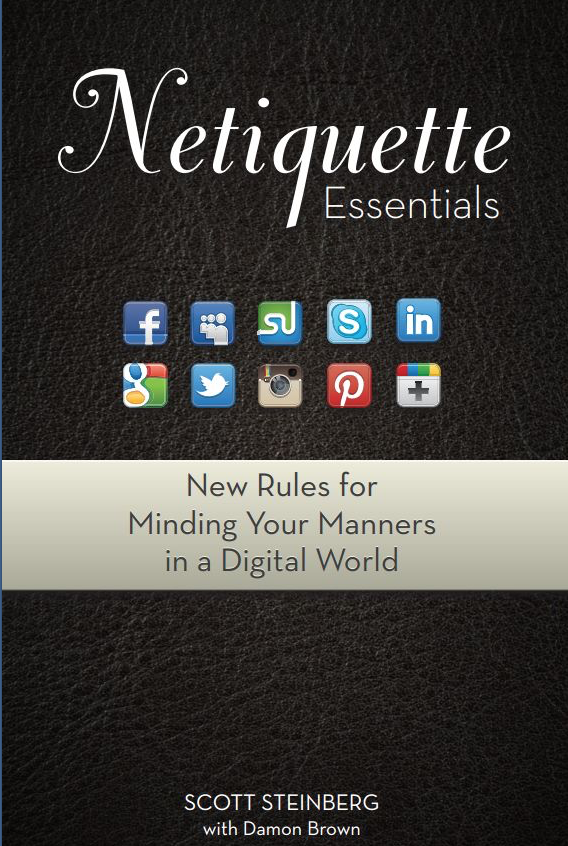Worried about screen time? Here’s something to remember!

GUEST POST by Scott Steinberg, bestselling expert on leadership and innovation
Even before their first birthday, most kids these days are intimately familiar with images and entertainment presented to them via screens. Whether it’s via the TV, a tablet PC or a smartphone, screen time is almost an inevitability for youngsters, especially if they have older siblings – hence the reason teachers and parents need more information and tips on kids and screen time, including answers to the #1 burning question about it: How much is enough?
While the Association of American Physicians’ recommendation that no screen time be provided for kids under the age of two may fit neatly into the lives of preschoolers, these guidelines must be adjusted as children grow older. Likewise, it’s also important to consider “bad” screen time vs. “good” screen time (e.g. screen time for mindless entertainment vs. education’s sake), and whether you believe there’s a difference. Certainly, a case could be made that a toddler watching Signing Time DVDs or a middle schooler watching a documentary about healthy eating habits is more valuable than time spent watching meaningless cartoons. Then again, you may beg to differ – either way, take time to think about where your opinion falls on the spectrum.
Just as kids will desire screen time, make sure to set aside device-free times that the entire family can spend together as well. Parenting experts such as Richard Rende, PhD, associate (research) professor in the department of psychiatry and human behavior at Brown University, suggest that the use of technology isn’t in itself necessarily what’s dangerous for kids as an impediment to healthy development. Instead, problems can arise if all the technology and connecting is done at the expense of other proven developmentally healthy and necessary activities. From a parental standpoint, setting a good example is potentially more important than establishing these rules. Make sure you don’t get caught up dedicating your focus to your phone or other screens over your kids.
On the bright side, parents and teachers can both play along and engage with kids about the activities they’re enjoying on-screen. Children will love telling you about what they’re watching, and treasure the time you are able to play together. Many parents and educators love to chat with kids about books, but fail to see how apps, games, movies and TV shows also engage their imagination. Each and every one of these activities can serve as a neutral and approachable platform through which to connect with children and bond with them over shared activities. If possible, translate the high-tech activities and games kids are engaging in into a real-life context. Case in point: If they are enjoying an alphabet tracing app, prepare some worksheets that highlight the same skills. If they’re playing games like Angry Birds at home, you could similarly setup an Angry Birds-style obstacle course in the house or classroom, and use it as an opportunity to teach children about the basic principles of physics.
As a general rule, when it comes to screen time, we often suggest that children might be started off at 30-60 minutes, which may be extended to 60-120 minutes of viewing time when they reach their tween years. But this is an entirely subjective recommendation. You may wish to allow more or less time, or add or subtract based on kids’ behavior. The short answer is that there’s no magic sliding scale when it comes to screen time, but it does pay to remember: Time spent in front of interactive media is better than that spent in front of passive viewing experiences such as TV, while time spent in front of educational or physical high-tech experiences that require children’s active input is more preferable still. However, at the end of the day, it’s all ultimately time spent in front of a screen – just one of many activities that should be part of a healthy, well-balanced diet of activities. Whether using high-tech devices for productivity or play, it’s just as important to know when to take a break and power down.

Award-winning professional speaker Scott Steinberg is a bestselling expert on leadership and innovation, and the author of Netiquette Essentials: New Rules for Minding Your Manners in a Digital World, Millennial Marketing: Bridging the Generation Gap and Make Change Work for You: 10 Ways to Future-Proof Yourself, Fearlessly Innovate, and Succeed Despite Uncertainty. Among today’s leading providers of keynote speeches, workshops and seminars for Fortune 500 firms, his website is www.AKeynoteSpeaker.com
